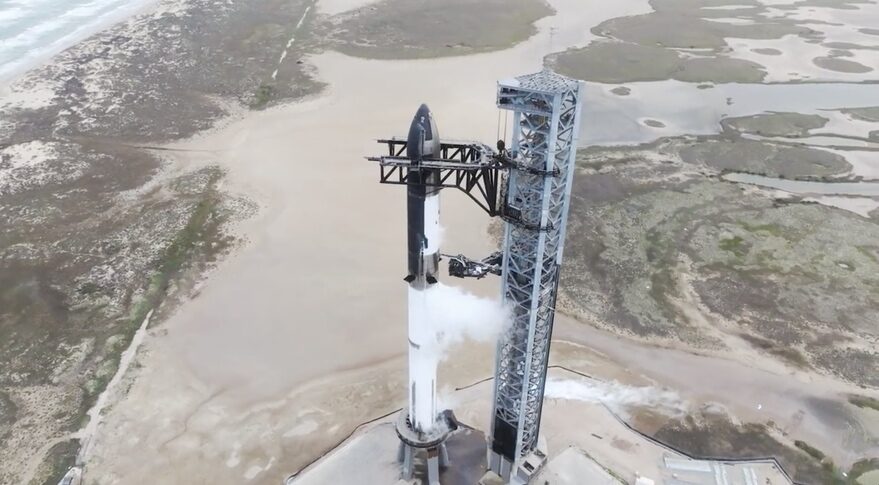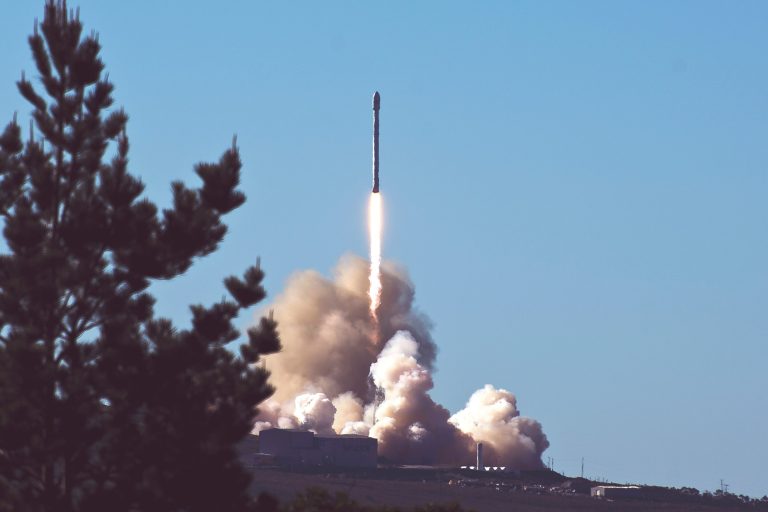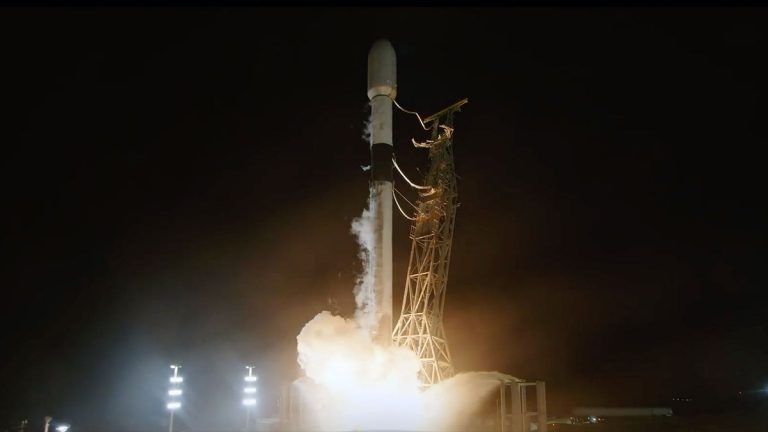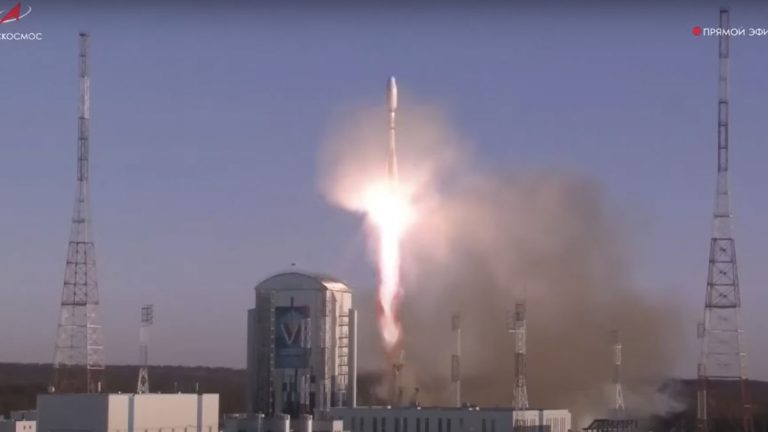
SpaceX completes Starship wet dress rehearsal (Image Credit: Space News)
WASHINGTON — SpaceX conducted a fueling test of its full Starship launch vehicle Jan. 23, taking the vehicle one step closer to its first orbital launch attempt.
The fully stacked Starship vehicle, consisting of a Super Heavy booster designated Booster 7 and a Starship upper stage named Ship 24, was filled with liquid oxygen and methane propellants during the test at SpaceX’s Starbase test site in Boca Chica, Texas. The test, called a wet dress rehearsal, simulates a countdown without firing the vehicle’s engines.
SpaceX disclosed few details about the test while it was in progress, although observers could see frost accumulating on the vehicle as it was filled with cryogenic propellants. Only after the wet dress rehearsal was complete did SpaceX confirm that it took place.
“Starship completed its first full flight-like wet dress rehearsal at Starbase today,” the company tweeted late Jan. 23, noting that the vehicle was loaded with more than 4.5 million kilograms of propellant. “Today’s test will help verify a full launch countdown sequence, as well as the performance of Starship and the orbital pad for flight-like operations.”
Starship completed its first full flight-like wet dress rehearsal at Starbase today. This was the first time an integrated Ship and Booster were fully loaded with more than 10 million pounds of propellant pic.twitter.com/btprGNGZ1G
— SpaceX (@SpaceX) January 24, 2023
The wet dress rehearsal was one of the final milestones for the vehicle before the company was ready to attempt an orbital launch. Another is a static-fire test of all 33 Raptor engines in the Super Heavy booster, something SpaceX has yet to attempt.
SpaceX Chief Executive Elon Musk tweeted earlier in the month that the company could be ready for that launch as soon as late February, with a launch in March “highly likely.” However, the company has missed past schedules for Starship launch readiness.
That first Starship orbital launch attempt is a critical event not just for SpaceX, which is counting on Starship to further reduce launch costs and increase launch rates, but also for NASA. The agency has provided SpaceX with more than $4 billion in awards through its Human Landing System (HLS) program to develop versions of Starship to land astronauts on the moon for its Artemis lunar exploration campaign.
The agency is closely following SpaceX’s Starship tests. “I’m just thoroughly impressed by the scale of these pictures and what the vehicle looks like in an integrated stack,” said Ryan Joyce of NASA’s Langley Research Center, who is working on HLS, during a panel discussion Jan. 23 at the AIAA SciTech Forum, showing several images of Starship development. “We are literally trying to launch skyscrapers here.”
NASA’s insight into Starship development includes having astronauts visit to ensure that the vehicle can be safely operated by them. “This is ultimately a vehicle that needs to be operated by the astronauts,” he said. “If you don’t have the conversations with astronauts, as crew members and operators of the spacecraft, during the design phase, you might get far enough along with your design before you find your vehicle is inoperable.”
As SpaceX conducts Starship tests at Boca Chica, it is constructing a new Starship launch facility on the grounds of Launch Complex 39A at the Kennedy Space Center. The tower for that launch pad now overshadows the existing pad used for Falcon 9 and Falcon Heavy launches.
“It’s very exciting to see the progress being made at SpaceX facilities right now, including at KSC where they’re building a second orbital launch capability,” he said. NASA’s HLS awards leave it up to SpaceX to conduct its lunar lander launches either from KSC or Boca Chica, he noted.








